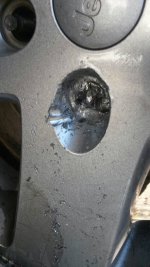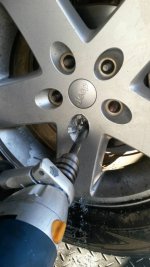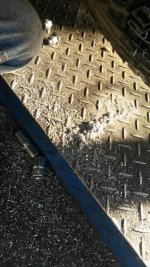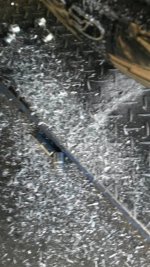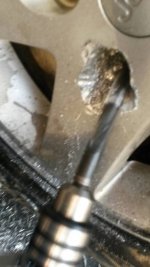Lourens
New member
This is what happens when a dealership does not use the correct method to tighted wheel nuts... Airtool and no coppercompound. Now after some water and mileage nothing gets this wheel nut off. After three broken sockets... and hours of drilling to save the mag... the only way is destroy the mag wheel!

